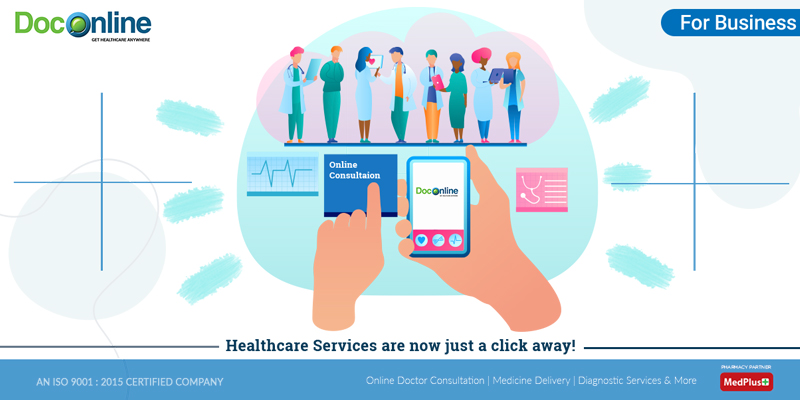Exploring the Development of Subscription Based Healthcare in the Digital Age
Exploring the Development of Subscription Based Healthcare in the Digital Age
Blog Article
Recognizing the Cost-Effectiveness of Subscription-Based Medical Care Designs
As the medical care landscape progresses, subscription-based versions emerge as an engaging alternative, guaranteeing to redefine exactly how people handle clinical expenses. Examining these versions' cost-effectiveness necessitates a nuanced contrast with conventional insurance, thinking about both economic implications and client contentment. While they offer transparency and predictability in expenses, questions remain concerning their ability to satisfy varied healthcare needs, particularly for specialized therapies. The viewpoints of healthcare suppliers further complicate this equation, providing a diverse challenge. What does the future hold for these designs, and can they genuinely supply on their promise of available, budget friendly care?
Overview of Subscription-Based Versions
Subscription-based medical care versions, often referred to as direct health care or attendant medication, are progressively acquiring attention as a possible remedy to inadequacies within standard health care systems. These models operate on the concept of offering individuals straight access to healthcare service providers through a annual or month-to-month cost, bypassing the need for traditional insurance policy systems. This arrangement intends to enhance patient-provider interactions by lowering management burdens, which often prevent individualized and timely care.
At the core of subscription-based versions is the emphasis on a more tailored patient experience. People gain from boosted access to their physicians, usually including next-day or same-day visits, expanded assessment times, and straight communication channels such as phone or video clip calls. This version fosters a positive approach to health care, where suppliers and patients can collaboratively concentrate on preventative treatment and chronic illness administration.

Price Contrast With Conventional Insurance Coverage

One of the main monetary advantages of registration versions is transparency in costs. Conversely, traditional insurance might be extra helpful for individuals requiring specialized treatment or costly treatments not covered under a subscription version, as they benefit from the more comprehensive protection network and cost-sharing devices.
Nevertheless, cost-effectiveness is context-dependent. While subscription versions might supply cost savings for those mostly needing key care, people with chronic problems or specialized healthcare requirements could discover typical insurance coverage a lot more comprehensive. As a result, assessing certain healthcare demands and possible usage is vital in identifying one of the most affordable choice for individuals.
Impact on Individual Satisfaction
Client fulfillment within subscription-based medical care models frequently shows a considerable renovation over traditional insurance systems. This enhancement is mostly credited to the individualized treatment and access these versions offer. Individuals regularly report greater satisfaction due to reduced wait times and the ease of scheduling appointments. Unlike traditional systems, where patients may experience hold-ups in getting treatment, subscription-based designs make sure more timely and straight communications with medical care carriers.
Additionally, the transparency in costs connected with subscription-based health care minimizes the typical irritations associated to unexpected costs and complex payment procedures seen in traditional insurance policy (subscription based healthcare). Individuals appreciate recognizing the precise monetary commitment upfront, bring about enhanced trust and self-confidence in their healthcare monitoring
Additionally, the focus on preventive care and see this here health in subscription versions contributes to boosted health end results, further improving person fulfillment. By concentrating on continuous wellness maintenance as opposed to anecdotal care, individuals experience an even more constant and all natural healthcare trip.
In addition, the enhanced provider-patient connection try this website cultivated in these models, defined by more time invested per person and customized focus, plays an essential function in boosting person complete satisfaction levels, as individuals really feel truly cared for and comprehended.
Provider Perspectives and Experiences
From the supplier's point of view, subscription-based healthcare models provide a transformative method to providing clinical services. These designs highlight a preventative and aggressive medical care approach, permitting providers to focus on extensive client care without the restraints of typical fee-for-service setups (subscription based healthcare). This change in emphasis commonly causes enhanced individual results and enhanced company fulfillment, as medical care specialists can allot even more time and sources to client engagement and personalized treatment strategies
Furthermore, subscription models assist in predictable check out this site revenue streams, which boost economic stability for doctor. This predictability enables enhanced resource preparation and allowance, adding to a much more efficient medical care distribution system. Carriers can purchase staff modern technology, facilities, and training enhancements, therefore improving the quality of treatment provided.
However, the shift to subscription-based models is not without obstacles. Companies must adjust to brand-new operational structures, which can involve considerable adjustments in invoicing practices and individual management systems. Furthermore, there is an inherent requirement for durable data administration to track person results and ensure high quality treatment. Despite these obstacles, several companies locate that the benefits of enhanced individual communication and streamlined procedures outweigh the preliminary difficulties, making subscription-based versions an attractive choice.
Future Potential Customers and Difficulties

A primary obstacle is governing compliance, as subscription versions need to adhere to developing healthcare plans and insurance coverage requirements. This demands constant adaptation and innovation to make certain positioning with legal criteria. Furthermore, incorporating these designs into existing health care infrastructures can be intricate, requiring substantial financial investments in technology and training.
There is additionally the potential threat of producing injustices in health care accessibility, as membership models may prefer those who can manage them, leaving susceptible populaces underserved. Addressing this calls for thoughtful consideration of prices strategies and aid mechanisms to guarantee inclusivity.
Verdict
Subscription-based healthcare models provide a feasible option to typical insurance by providing financial predictability and transparency, especially benefiting individuals with chronic conditions or regular health care requirements. The cost-effectiveness of these designs is contingent upon private health care usage patterns and situations.
Subscription-based health care designs, in some cases referred to as direct primary care or concierge medication, are significantly obtaining focus as a possible option to ineffectiveness within typical healthcare systems. Unlike typical systems, where people could experience hold-ups in getting care, subscription-based models make certain even more prompt and straight interactions with healthcare service providers.
These designs highlight a preventative and aggressive medical care method, allowing providers to concentrate on detailed client care without the restraints of conventional fee-for-service arrangements. As these designs continue to obtain traction, they offer the possible to transform patient accessibility to care, improve solution shipment, and maximize health care spending.Subscription-based health care models offer a feasible alternative to standard insurance by supplying monetary predictability and openness, particularly profiting individuals with persistent conditions or regular medical care requirements.
Report this page